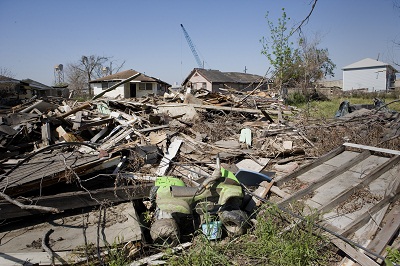While a disaster like Harvey brings out the best in people as evidenced by the reports of all the volunteers putting themselves at risk to help and the massive fund raising efforts in a relatively short time it also brings out the worst in others. Reports are coming in of motels charging up to 6 or 7 times their normal room rates, gas at $20 a gal., water at $99 a case / $5 a bottle. The list goes on and includes everything from that people need to survive. In Texas, as in many states, there are laws against this. Inflating prices more than 10% above recent averages (I think I read or heard that is for the previous 3 months) is a violation of the law. Fines can be up to $20,000 per incident. If the victim is over the age of 65 the fines can be as much as $250,000. One franchise motel was caught on 40 cases of charging almost 3X the normal rate plus collecting state taxes that had been suspended by the governor. Best Western condemned the action and said they will pull their name / association with the owners.
While I understand there may be some added expenses to keeping a business open and bringing in supplies during times like this I hope our AG goes after the obvious, extreme cases of people taking advantage of the situation for a fast buck. If they can't pay the fines shut them down and take the inventory to put it into the relief effort.
I was stationed in South Carolina when Hugo hit Charleston. The mayor ordered any outsiders selling items at inflated prices be arrested and everything confiscated. The stuff taken was turned over to government agencies or charity organizations for distribution. One incident that made the news was a truck load of generators. He did get the empty truck back. When they moved outside the city's ETJ the governor announced the he would continue the policy.
While I understand there may be some added expenses to keeping a business open and bringing in supplies during times like this I hope our AG goes after the obvious, extreme cases of people taking advantage of the situation for a fast buck. If they can't pay the fines shut them down and take the inventory to put it into the relief effort.
I was stationed in South Carolina when Hugo hit Charleston. The mayor ordered any outsiders selling items at inflated prices be arrested and everything confiscated. The stuff taken was turned over to government agencies or charity organizations for distribution. One incident that made the news was a truck load of generators. He did get the empty truck back. When they moved outside the city's ETJ the governor announced the he would continue the policy.



Comment